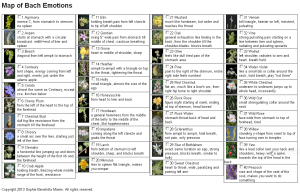 All Decisions Are Emotional. Later You Justify Them With Your Mind. Want to know what emotion blocks your breathing?
All Decisions Are Emotional. Later You Justify Them With Your Mind. Want to know what emotion blocks your breathing?
There is nothing new in that for many of you, but for those of you that didn’t know about it: let me explain.
Emotions is a guidance system that is much more ancient than the mind. You feel stuff way before the mind gets alert that something is going on. The mind is always late to every party. The mind asks the question: “What happened?” because it doesn’t know.
There is a saying: some people make things happen, others watch things happen, and yet more people ask: what the heck happened?
Now, up till here, this is pretty commonplace for a lot of people.
What I am going to say now is new, even I didn’t know until this past Saturday. It is so new, and it is so shocking, to me, that I have been telling it to everyone who is willing to listen.
In many Landmark Education programs, they recommend that you use a koan. 1 It’s a good idea to have a koan in mind while you are reading this article, and maybe continuously until you completely get it…
The koan I recommend: “for you, everything is the same as everything else, except that not always…”
Koans don’t make sense until they do. It has taken me 27 years to mine all the gold that is in this particular koan.
OK, let me explain what I have found:
I have found that of the 40 possible negative feelings, a “normal” human being can identify maybe 5-10.
The rest of them they don’t identify them correctly. They do feel them, but they mis-identify them.
The feelings they recognize are mostly anger, jealousy, resistance, fear of failure, fear of being found out, shame, guilt, and impatience, sadness, tiredness, terror, hate, and grief.
There are 40 negative emotions, and then there are combinations. The 40 negative emotions match the 40 Bach Flower energies, the exact replicas of the Bach Flower Remedies. The more accurately your identify a feeling, the more appropriate your response is to it.
Now, don’t be mistaken, you feel all 40, and all the combinations, but you will call them with your favorite 5-10 emotions, and will act consistently with what you call them, not the emotion. How many times did you find out that your reaction to a person’s behavior was way off base? They complimented you and you took it as an offense. Or they supported you and you took it as condescending. Or they offered valuable critique and you took it as if they told you you were nothing, or worthless.
How many times did you find out that your reaction to a person’s behavior was way off base? They complimented you and you took it as an offense. Or they supported you and you took it as condescending. Or they offered valuable critique and you took it as if they told you you were nothing, or worthless.
Or how many times did you think you loved someone, only to find out that it was lust? Or jealousy? Or possessiveness? Or a move to prove your superiority?
If my students in the Soul Correction Workshop are any indication, you will have a favorite way to react to everything.
This is how it works:
You have an emotional response to what’s being said or done or what happens. Your mind interprets it, and then you react.
Your emotional response is a reptilian brain response: we don’t call that the mind, no words there. It will be inaccurate if you were previously “trained” to fear… being threatened.
The mind adds the second layer of error, because it doesn’t know left from right, it is a stupid machine, and you never actually learned to accurately identify your emotions. You have been pushing underground most “negative” emotions as unsavory, and now you are screwed.
- One of my students reacts to near-everything with fierce self-protection: everything feels like an attack to her. Her cost of not being able to differentiate between different emotions renders her, in addition to being aggressively self-protecting, it renders her unable to express her love. Expressing love feels like opening herself up to being attacked more.It is costing her intimacy, it is costing her loving what she does, it is costing her knowing herself.
- A friend of mine reacts to near everything with reluctance. For him everything is to hook him, everything to get close, and that is a no-no: he is hiding that he things he is not good enough.This cost him intimacy, and this cost him being able to do anything with his whole heart. He is like a butterfly, he is like an insect that skims the surface of water, a water strider. He never gets wet. No matter what happens, he stays just every so slightly outside of it.He is unfulfilled, and dissatisfied with his life.
- Yet another student reacts to everything with fear. For him everything says: you are not wanted, you are not good enough, you’ll be left alone.The cost is that he is not able to express his deep love for people, especially his family. He is always ready to quit his music, because if he got really involved, he has the deep fear of loss… He feels that he wasted his life. Not a good thing to feel.
To the urging of another student, I have created a map of the 40 Bach Flower emotions, and I’d like you to have it. At this point it is a one-page pdf document. But eventually I’ll make a video to illustrate the map, and talk you through it.
The more feelings you can correctly identify, the closer you will be to reality, and the higher your vibration will go.
This is not about avoiding negative feelings: emotions are there to inform you much before your mind, your conscious mind can even wake up. You need them.
Abraham/Hicks have made quite a name for themselves teaching you to change your feelings. Although that may have some value, the real value is in knowing what the feeling is saying to you, to look at it, and appreciate it.
I have noticed that when you have the courage to look at something like pain or emotion, the intensity lessens, because the purpose of pain and emotion is to get your attention.
And I also don’t mean to tell you to wallow in your emotions: emotions, when you pay attention to them, are energy in motion, they move. The “emotions” you wallow in are not emotions, they are frozen attitudes.
A normal emotion comes and then it goes, faster than you can blink. What perpetuates you feeling it is the mind that labels it, or shall we say “mis-labels” it.
If you are interested in getting the Map of emotions pdf, please click here…
- Definition of KOAN
: a paradox to be meditated upon that is used to train Zen Buddhist monks to abandon ultimate dependence on reason and to force them into gaining sudden intuitive enlightenment. One of the best known koans is: If a tree falls in the forest, does it make any sound?

I like the broken record player analogy. But I prefer the phenomenon as an analogy. But it is more like this: everything tastes spinach if you don’t like spinach. Everything tastes liver if you don’t like liver. Everything feels like “they don’t like me” if that is your dominant feeling.
BUT… it kicks in only after the mind gets engaged, covering up the original feeling.
Once you are able to identify more feelings, it will happen less and less.
This is an approach from the direction of the feelings. Most people teach approaching the mind, but then it’s a little too late.
Sophie, i want to respond to your article, i think it is brilliant. but i am in a very mimulous frame of mind at the moment. have experienced most of the negative emotions at one stage or another over the years (not sure that you can prescribe them without feeling them).i still meet people and say to myself,, your a heather, or a gorse or a vervain,, blah blah,,, i gave my precious little tattered book ‘heal thyself’ away a couple of years ago,,,
my life is so not rosy in any shape or form at the moment and i seem to have more ‘heathers’ in it than anything. there is so much in your article, and i’m not sure if i got it right, but maybe we tend to ‘group’ a whole lot of feelings into one ‘category’??? cause i know thats’ what i’ve done after reading your article,,but the most dominant crappy feelings keep on re-surfacing like a broken record player,,
Thank you for your website and all your insights, i really appreciate them and look forward to them every week. Thank You.